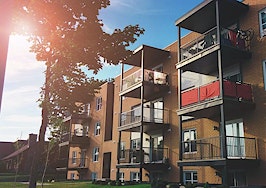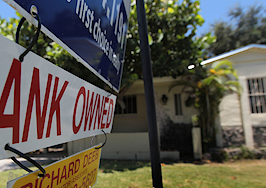In these times, double down — on your skills, on your knowledge, on you. Join us Aug. 8-10 at Inman Connect Las Vegas to lean into the shift and learn from the best. Get your ticket now for the best price.
While the most severe impacts of the COVID-19 pandemic may have receded into the rearview mirror for many people, hybrid work that relies less on offices has likely become a permanent fixture of professional life — and will probably tamp down demand for urban real estate for years.
That’s according to a new report, out Thursday, from consulting firm McKinsey & Company that looked at how the pandemic has reshaped demand for real estate. Among the report’s biggest findings is the revelation that “office attendance has stabilized at 30 percent below pre-pandemic norms.” That’s because more workers now have the flexibility to do at least some of their labor remotely.
This situation will have a number of cascading consequences. Among other things, the report notes that up to 7 percent of people in urban cores across the world have permanently left those areas. In New York, the number was 5 percent, according to the report, while in San Francisco it was 6 percent.
Many of those ex-urbanites left for the suburbs.
“In the United States, suburbanization had already been happening before the pandemic, and the shock accelerated an existing trend,” the report states.
Dallas, Houston, New York, San Francisco, and Washington, D.C., were all among the global cities where suburban growth most strongly outpaced growth in urban centers. Most of the cities where that trend was weakest were located in Japan and Germany.

Credit: McKinsey & Company
The ultimate result of this migration away from big urban centers is that “demand growth for residences will be muted, especially in urban cores,” the report states.
That muting effect could drag on, with the report arguing that in 2030 — seven years from now — demand for residences in major urban cores is likely to be 10 percent lower than it otherwise would have been if not for the pandemic. The 10 percent figure also assumes that population growth will return to pre-pandemic levels by next year. If that doesn’t happen, things could be even worse.
“Should population growth remain depressed for longer, the impact on demand would be even bigger,” the report states.
The good news is that the report doesn’t depict a future of hollowed out cities and abandoned buildings. Indeed, it specifically argues that “homes in urban cores are unlikely to stay empty.”
What is likely to happen, however, is that home prices and rents will likely fall. The report doesn’t quantify any potential price dips, but it does note that “downward pressure” is unlikely to make superstar cities — places like New York and London that act as global economic and cultural centers — much more affordable.
The report is based on a survey of 13,000 full time office workers in six different countries. Of those workers, 3,200 were based in the U.S. McKinsey conducted the survey last fall.
In addition to revealing that demand for urban residential real estate is likely to remain below pre-pandemic levels for years, the report found that in a “moderate scenario” demand for urban office space in 2030 will be 13 percent lower than it was in 2019.
“In a severe scenario, demand falls by 38 percent in the most heavily affected city,” the report adds.
The report describes San Francisco as “the most strongly affected city in the United States” when it comes to falling demand for office space.
Retail in urban areas is also struggling; the report notes that while foot traffic near urban retail space has risen from its pandemic-era low point, it remains “10 to 20 percent lower than it was before the pandemic.”

Credit: McKinsey & Company
While the report is clear that the impacts of the pandemic will linger, that doesn’t mean all urban areas will see similar impacts. Indeed, the report notes that neighborhoods with office monocultures — in other words, places that don’t have a balanced mix of housing, retail, office and other uses — are suffering most acutely.
One such area is the Financial District in Manhattan, which has seen more out migration than the nearby Lower East Side, a neighborhood with a more diverse mix of building types.
How exactly all of this impacts real estate agents in big cities remains to be seen. But a future marked by less demand for urban homes, office space and retail will likely force agents to pivot and adapt. And more generally, the report suggests adaptability will be key for thriving in the future.
“Superstar cities are facing a new reality in which hybrid work worsens vacancy rates, threatens the vibrancy of neighborhoods, and thus makes urban cores less attractive to employers, employees, and residents,” the report concludes. “To adapt to that new reality, urban stakeholders could consider adopting more hybrid approaches themselves. At the neighborhood and building levels, and even in the design of the floors of buildings, choosing diversity, adaptability, and flexibility rather than homogeneity can help cities thrive.”













